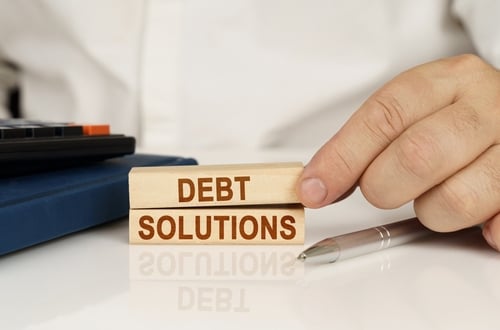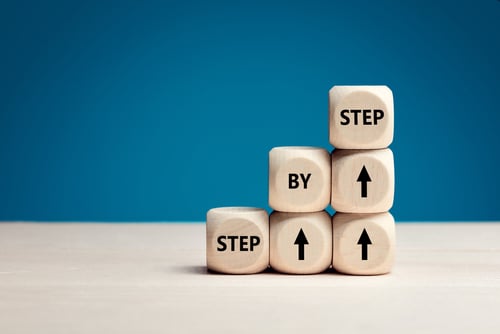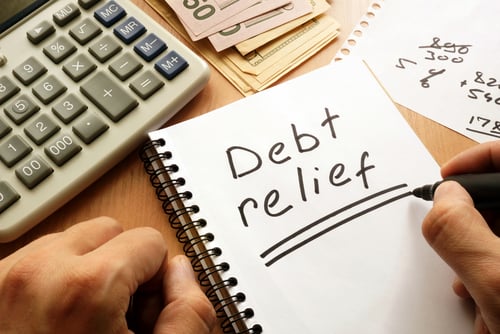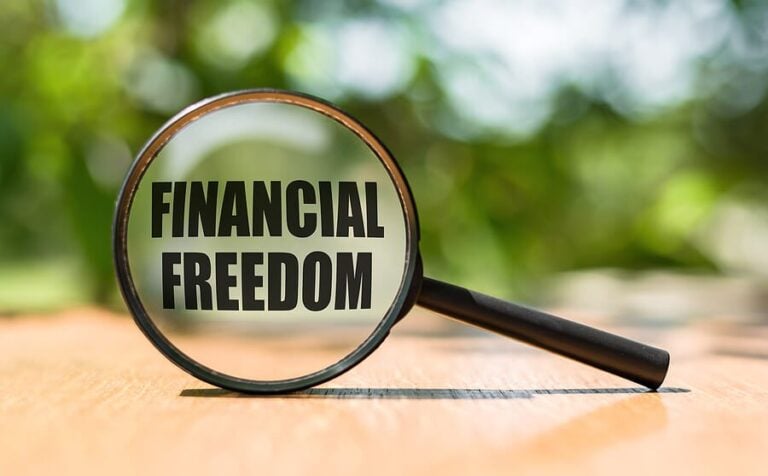Debt can feel overwhelming when you’re doing everything right, but your balances remain high. For many, debt relief offers a path toward stability and financial control.
Debt relief helps consumers reduce what they owe through structured repayment or settlement programs. These come in several forms, each with its own pros and cons. If you’re exploring options, here’s how to decide whether debt relief could be worth it for you.
Different Types of Debt Relief Programs
There are several ways to approach debt relief depending on your financial needs:
- Debt Settlement: Negotiates with creditors to lower balances.
- Debt Consolidation: Combines multiple debts into one loan with new repayment terms.
- Credit Counseling: Provides budgeting guidance and structured repayment plans.
- Bankruptcy Assistance: Helps evaluate whether filing for bankruptcy is appropriate.
Each approach offers pros and cons, and the right option depends on your goals, debt type and timeline for recovery. There’s no one-size-fits-all answer, so consider what’s best for you.
How Debt Relief Works in Practice
While each program varies, the general process for debt relief follows a few clear steps:
- Consultation and assessment: A debt relief specialist reviews your finances to confirm eligibility and estimate your potential savings. They’ll share their findings with you and get your approval before moving forward with a specific option.
- Negotiation or consolidation: For debt settlement, the company communicates directly with creditors to reduce balances or interest rates. If you’re pursuing debt consolidation, you’ll work with specialists to take out a debt consolidation loan that will pay off your existing eligible debts.
- Resolution: You approve any settlement offers or debt repayment plans before payments are finalized. From there, you will work to pay off your agreed-upon balances or start making payments toward your debt consolidation loan.
If you’re struggling to decide which option is best for you, let United Debt Settlement help. From confirming eligibility to completing a debt relief plan, we’re here to support borrowers with various needs from start to finish.
What Happens When You Apply for Debt Relief
If you’re wondering what happens when you apply for debt relief, you’ll start with an initial consultation. Debt relief companies will look at your financial picture, confirm your eligibility and explain what a debt relief program is to ensure you understand your options. From there, the next steps depend on which type of program you pursue.
For example, the company may begin negotiating with your creditors to lower balances. Or, it may be time to apply for a debt consolidation loan. Whichever option you choose, you’ll stop making payments on your existing debts and will follow the new, agreed-upon repayment plan. Make sure you’re committed, patient and available throughout the process to expedite your path to financial freedom.
Who is Debt Relief Worth It For?
Debt relief is often most helpful for people struggling with unsecured debts like credit cards, medical bills or personal loans. It can also help small business owners manage large balances or overdue accounts.
It may be a good fit if you’re:
- Making minimum payments without seeing balances go down
- Facing collection activity or lawsuits
- Falling behind despite a steady income
- Trying to avoid bankruptcy, but need structured help
- Emotionally overwhelmed by the pressure of debt
In short, debt relief is typically worth considering for people who have tried other options without success and want a guided, professional approach to reducing what they owe.
When to Consider Debt Relief
Many wonder, “When is debt relief a good idea?” Debt relief can be helpful when you have significant unsecured debt and limited resources to pay it off on your own. For many, it provides a realistic path toward rebuilding their finances. Here are some things to consider when figuring out whether or not it’s worth it for you:
Worth It | Not Worth It |
You have high unsecured debt (credit cards, medical, personal loans) | You have low debt balances that you can repay within a few months |
You’re struggling to make minimum payments | You can manage payments comfortably without assistance |
You want to avoid bankruptcy but need help negotiating | You have mainly secured debt, like a mortgage or car loan |
You’re ready to stay committed to a structured plan | You expect quick results or instant credit recovery |
You’re comfortable with potential credit score dips for long-term relief | You can qualify for a lower-interest consolidation loan instead |
When Is Debt Relief Not Worth It?
Debt relief may not make sense if your debt is small or manageable through budgeting. In some cases, a personal loan or short-term repayment plan can resolve the issue faster with less credit impact.
It’s also less useful if most of your debt is secured, if you want instant results or if you’re unwilling to accept temporary credit effects. If you qualify for a low-interest consolidation loan or can manage your own plan, those routes might be more cost-effective. Always weigh your debt amount, urgency and long-term goals before enrolling.
How to Evaluate If Debt Relief Is Right for You
Deciding whether debt relief is worth it depends on your goals, current debt load and willingness to follow through. Start by evaluating:
- Debt type and total amount: Unsecured debts are eligible; secured debts typically are not.
- Current credit situation: Expect a temporary drop in your credit score, which can recover over time.
- Commitment level: Relief programs usually last 24 to 48 months, requiring consistent participation.
- Financial stability: Even a modest, steady income can make a big difference in completing the program successfully.
Before applying, review your full financial picture. Look at your income, all of your expenses, your current budget and your ability to rework your finances if enrolled in some type of debt relief program.
The Benefits of Debt Relief
When properly managed, debt relief can offer significant advantages:
- Reduced total debt: Creditors may agree to accept less than the full amount owed.
- Simplified repayment: One manageable monthly payment replaces multiple bills.
- Stress reduction: You gain structure and support through professional guidance.
- Alternative to bankruptcy: Relief programs allow you to recover without the long-term impact of filing for bankruptcy.
Ultimately, debt relief is real for those willing to follow through and stay committed. Many participants regain confidence as balances decrease and financial stability returns.
The Drawbacks to Consider Before Choosing Debt Relief
Debt relief is a financial strategy that comes with potential drawbacks:
- Credit score impact: Late payments or settlements can temporarily lower your score.
- Tax considerations: Forgiven debt may be reported as taxable income.
- Time commitment: Programs take two to four years to complete.
- Variable results: Savings depend on creditor cooperation and consistent payments.
Understanding these factors upfront helps you set realistic expectations and stay motivated.
Choosing a Debt Relief Company
If you decide to move forward with debt relief, you’ll likely consider the benefits of working with a professional. But how do you find the right one? Look for a provider with transparent terms and licensed professionals. A legitimate debt relief program should clearly outline how fees are charged, when negotiations begin and what results you can expect.
Avoid firms that promise immediate savings or guaranteed outcomes. Reputable providers, like United Settlement, focus on education and transparency—offering confidential consultations, customized solutions and proven results to help you find relief comfortably and confidently.
Common Misunderstandings About Debt Relief Programs
Some people believe debt relief ruins credit forever or that it’s the same as bankruptcy. Neither is true. Credit can recover over time, especially when good habits follow the program’s completion.
Others think all programs are scams, but debt relief is real when managed by accredited, transparent companies. Always verify credentials and review contracts before signing anything.
Finding Financial Freedom Through the Right Debt Relief Plan
Debt relief isn’t a quick fix, but for many, it’s the turning point toward a more secure financial future. By understanding how it works and choosing the right provider, you can move forward with confidence.
Taking time to research, budget and stay consistent allows you to rebuild credit and regain control over your finances. In that sense, debt relief can absolutely be worth it, not just for the money saved, but for the peace of mind that comes with a fresh start.

Steven Brachman is the lead content provider for UnitedSettlement.com. A graduate of the University of Michigan with a B.A. in Economics, Steven spent several years as a registered representative in the securities industry before moving on to equity research and trading. He is also an experienced test-prep professional and admissions consultant to aspiring graduate business school students. In his spare time, Steven enjoys writing, reading, travel, music and fantasy sports.









